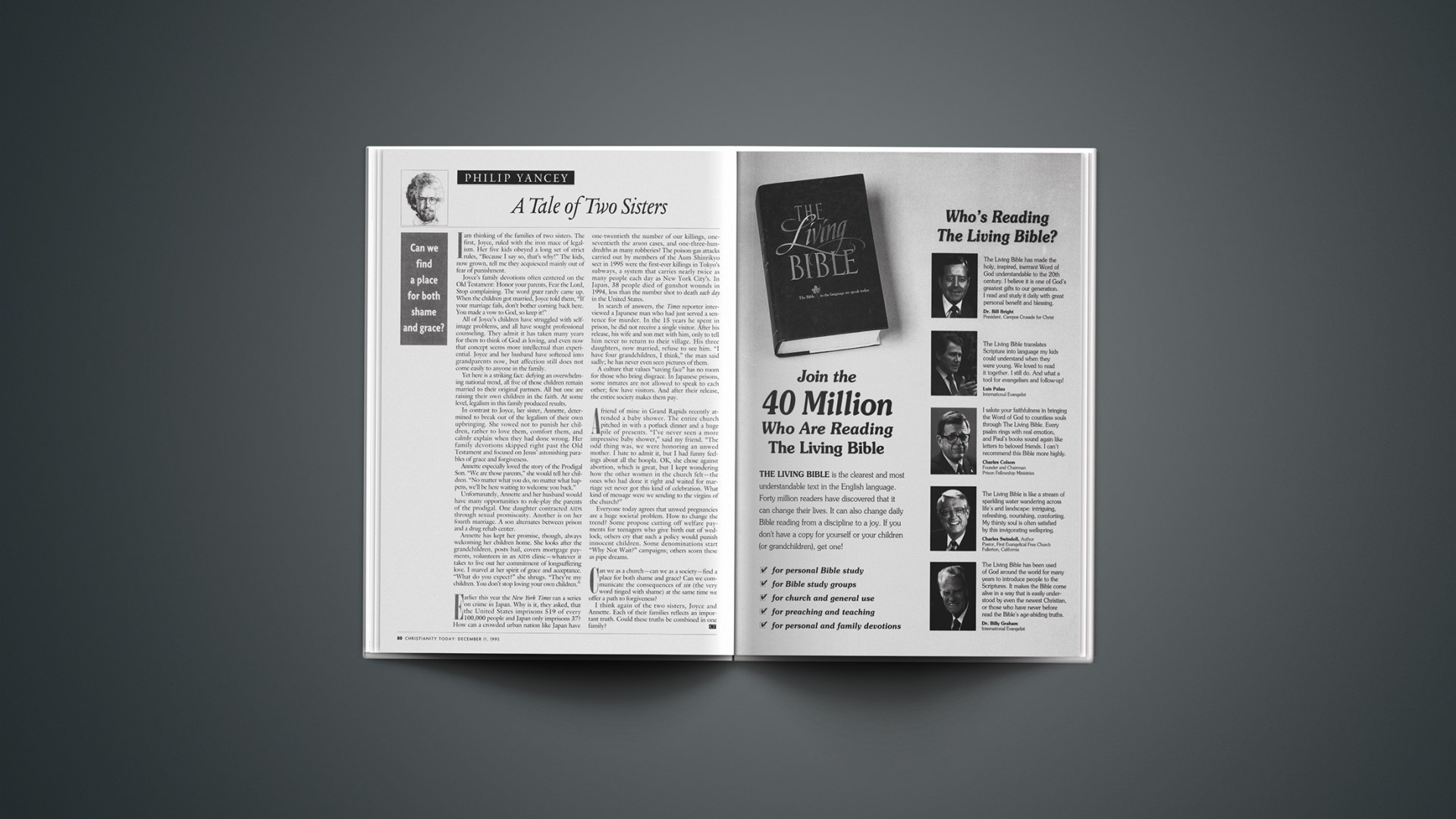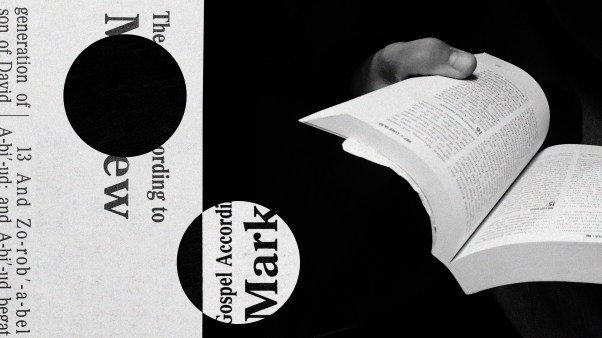I am thinking of the families of two sisters. The first, Joyce, ruled with the iron mace of legalism. Her five kids obeyed a long set of strict rules, "Because I say so, that's why!" The kids, now grown, tell me they acquiesced mainly out of fear of punishment.
Joyce's family devotions often centered on the Old Testament: Honor your parents, Fear the Lord, Stop complaining. The word grace rarely came up. When the children got married, Joyce told them, "If your marriage fails, don't bother coming back here. You made a vow to God, so keep it!"
All of Joyce's children have struggled with self-image problems, and all have sought professional counseling. They admit it has taken many years for them to think of God as loving, and even now that concept seems more intellectual than experiential. Joyce and her husband have softened into grandparents now, but affection still does not come easily to anyone in the family.
Yet here is a striking fact: defying an overwhelming national trend, all five of those children remain married to their original partners. All but one are raising their own children in the faith. At some level, legalism in this family produced results.
In contrast to Joyce, her sister, Annette, determined to break out of the legalism of their own upbringing. She vowed not to punish her children, rather to love them, comfort them, and calmly explain when they had done wrong. Her family devotions skipped right past the Old Testament and focused on Jesus' astonishing parables of grace and forgiveness.
Annette especially loved the story of the Prodigal Son. "We are those parents," she would tell her children. "No matter what you do, no matter what happens, we'll be here waiting to welcome you back."
Unfortunately, Annette and her husband would have many opportunities to role-play the parents of the prodigal. One daughter contracted AIDS through sexual promiscuity. Another is on her fourth marriage. A son alternates between prison and a drug rehab center.
Annette has kept her promise, though, always welcoming her children home. She looks after the grandchildren, posts bail, covers mortgage payments, volunteers in an AIDS clinic—whatever it takes to live out her commitment of longsuffering love. I marvel at her spirit of grace and acceptance. "What do you expect?" she shrugs. "They're my children. You don't stop loving your own children."
Earlier this year the "New York Times" ran a series on crime in Japan. Why is it, they asked, that the United States imprisons 519 of every 100,000 people and Japan only imprisons 37? How can a crowded urban nation like Japan have one-twentieth the number of our killings, one-seventieth the arson cases, and one-three-hundredths as many robberies? The poison-gas attacks carried out by members of the Aum Shinrikyo sect in 1995 were the first-ever killings in Tokyo's subways, a system that carries nearly twice as many people each day as New York City's. In Japan, 38 people died of gunshot wounds in 1994, less than the number shot to death each day in the United States.
In search of answers, the "Times" reporter interviewed a Japanese man who had just served a sentence for murder. In the 15 years he spent in prison, he did not receive a single visitor. After his release, his wife and son met with him, only to tell him never to return to their village. His three daughters, now married, refuse to see him. "I have four grandchildren, I think," the man said sadly; he has never even seen pictures of them.
A culture that values "saving face" has no room for those who bring disgrace. In Japanese prisons, some inmates are not allowed to speak to each other; few have visitors. And after their release, the entire society makes them pay.
A friend of mine in Grand Rapids recently attended a baby shower. The entire church pitched in with a potluck dinner and a huge pile of presents. "I've never seen a more impressive baby shower," said my friend. "The odd thing was, we were honoring an unwed mother. I hate to admit it, but I had funny feelings about all the hoopla. OK, she chose against abortion, which is great, but I kept wondering how the other women in the church felt—the ones who had done it right and waited for marriage yet never got this kind of celebration. What kind of message were we sending to the virgins of the church?"
Everyone today agrees that unwed pregnancies are a huge societal problem. How to change the trend? Some propose cutting off welfare payments for teenagers who give birth out of wedlock; others cry that such a policy would punish innocent children. Some denominations start "Why Not Wait?" campaigns; others scorn these as pipe dreams.
Can we as a church—can we as a society—find a place for both shame and grace? Can we communicate the consequences of sin (the very word tinged with shame) at the same time we offer a path to forgiveness?
I think again of the two sisters, Joyce and Annette. Each of their families reflects an important truth. Could these truths be combined in one family?
Copyright © 1995 Christianity Today. Click for reprint information.










